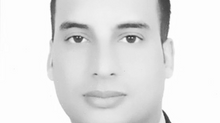Living together and Islamophobia in Québec : A reflection on certain attacks on my character
- Hicham Tiflati
- 3 févr. 2016
- 4 min de lecture

A short article I co-authored with a colleague from Toronto last December created a bit of an echo here in Quebec. The expression that had the most backlashes is “While Islamophobia and anti-Muslim animus exists throughout Canada, the nature of it in Quebec seems to be unique, and quite worrisome.” The quote gave the impression to certain individuals that we are stressing that Quebec is more Islamophobic than the rest of Canada. We did not infer that it is the worst Canadian province when it comes to Islamophobia. We stressed the uniqueness that is related to the specificity of Quebec. I think no one is denying Quebec’s unique tongue, unique history, and, more importantly, unique relationship to religion. To my knowledge, “unique” never meant “worst”.
It doesn’t take an Einstein to realize the uniqueness of Quebec. Even Wikipedia states that a :
“[D]istinct society is a political term especially used during constitutional debate in Canada, in the second half of the 1980s and in the early 1990s, and present in the two failed constitutional amendments, the Meech Lake Accord and the Charlottetown Accord. "Distinct society" refers to the uniqueness of the province of Quebec within Canada.”
At the other end of the spectrum, there were those who even denied the existence of Islamphobia or any form of discrimination in Quebec. The logical response to their assertions is the unanimous adoption of the resolution condemning Islamophobia by Quebec General Assembly last fall. The motion was proposed by Mrs. Francoise David of Quebec Solidaire. It was a reaction to the increasing assaults against Muslims in Québec. I don’t think our elected representatives are out of their minds to adopt, unanimously, a motion condemning a phenomenon that does not exist.
Up to this point, the controversy was somehow understandable. Assuming the ambiguity and the misunderstanding of an Op-Ed, or even the questioning of its findings and conclusions. Yet, I still do not understand the accusation of “Quebec bashing”. What seemed completely out of context are these dishonest attempts and disgraceful insinuations by some who tried to throw cheap accusations and assertions at me. It is strange how an author mentions one of my publications, “Why Charlie Hebdo Offends me?” as a “troubling publication” (his words). I am not sure about what seemed troubling to him in this short article. Is it the fact that I was arguing in favour of equal mourning regardless of the victims’ race, religion, or ethnicity? In fact, it is an argument that was revived after the recent Paris and Beirut attacks. I urge the readers to check the piece out and judge by themselves, as the author did not bother sharing his opinion.
Accordingly, other journalists did not keep to their professional ethics while commenting on my case. Some state that I said “Quebecers are Islamophobes” and that “Catholic societies are less open”. In fact, in the Op-Ed, we discussed actions of certain Quebecois. By asking whether Quebecers are Islamophobes, these journalists are creating divisions and barriers between Muslims and Quebecers and inferring that a Quebecer will never embrace Islam and a Muslim would never be considered a full Quebecer.
Another journalist kept arguing (on the phone) against something I never said. As I got confused, and to make sure we were on the same page, I asked whether she read the whole article, she confessed that she only read a paragraph (the one cited above) translated in French in one of Quebec’s newspapers. No comment.
Last but not least, other journalists mentioned my past employment at an Islamic school in Montreal. These folks insist that I am controversial because I worked in a school where the hijab is a part of the girls’ dress code. A few questions: (1) is the teacher, who is trying to put food on the table for his kids, the right person to attack in this situation? (2) Is he responsible for the school’s dress code or for changing the institutions’ regulations? (3) If their concerns are sincere, shouldn’t they ask the ministry of education that grants permits to private schools? (4) Finally, shouldn’t they call 911 if they believe there is any suspicious activity or a danger to Quebec society? They didn't. Instead, they psychologically stigmatized young Quebecers and their families. Just imagine the reaction of these youth while turning their televisions on and having the impression of being bashed by some local media? In fact, what those journalists failed to tell their readers is that the same school also has (and had) staff from French and Romanian descent. The current pedagogical counsellor of the school is a pure lane Quebecer, who is an academic with a PhD and a 30-year career as a university professor. Should we ban him from furthering careers because of his 6 years employment at this school? I don’t think so.
To conclude, I have to say that the path to living-together is not through attacking and censuring fellow citizens based on false arguments and fake analogies, but through dialogue and mutual respect. I spent my years in Quebec as an activist working on living-together and on helping youth integrate into the mainstream society. I have learned from my research that our common enemy is ignorance. Ignorance breeds fear, discrimination, racism, isolation, disintegration, homophobia, Islamophobia, etc. The solution to many of our social problems is, as Charles Taylor and Gerard Bouchard have been advocating for years, more intercultural dialogues between all Quebecers in a spirit of respect and mutual recognition.



























Comments